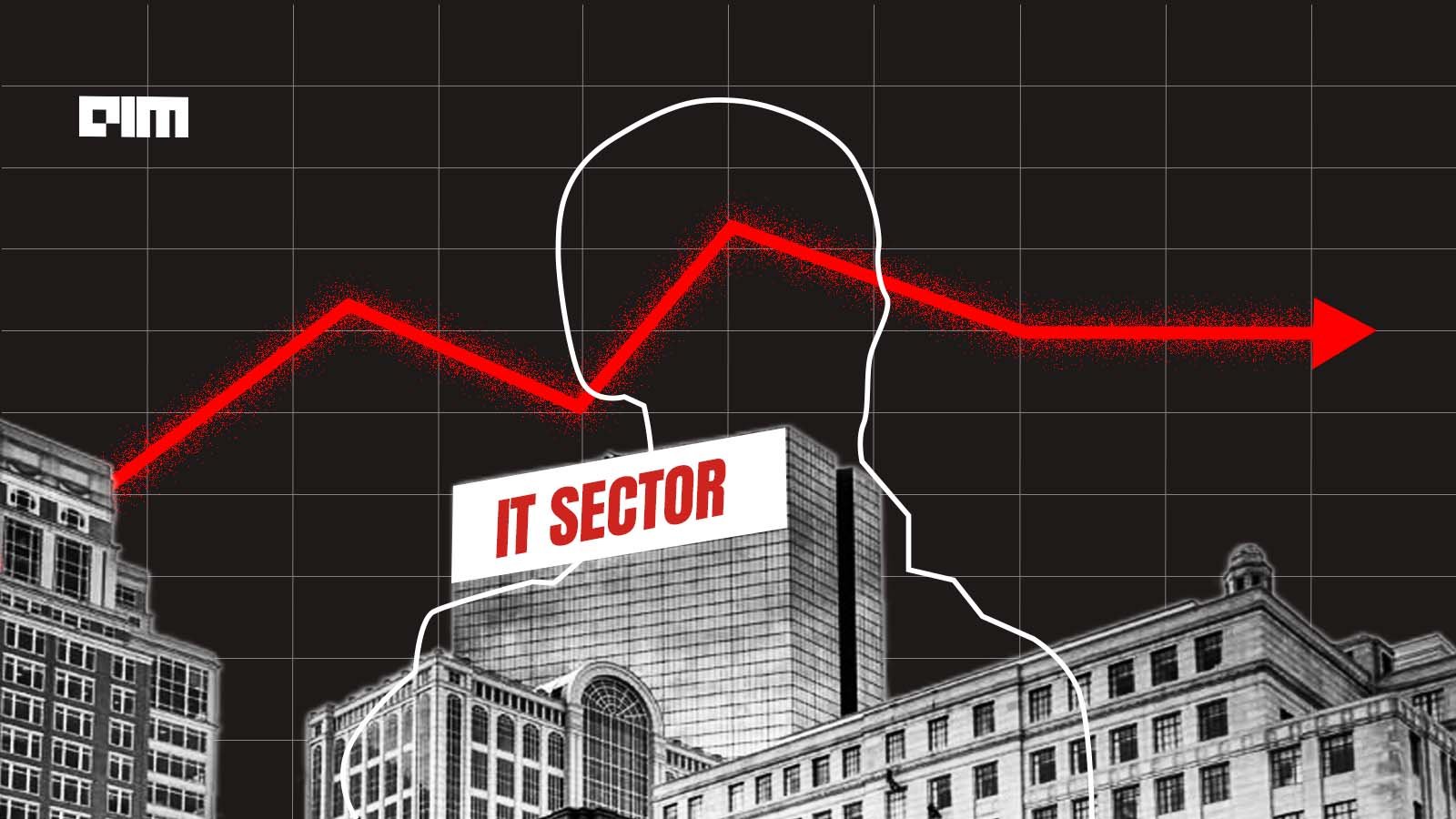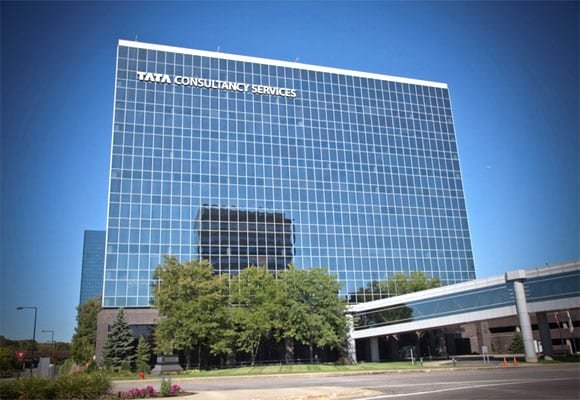Jobs & Careers
Outsourcing Crackdown Looms in Washington, India’s $100 Billion IT Industry on Edge

The call to “bring jobs back to America” is echoing once again in Washington, this time with India in focus.
What began as a campaign refrain has now entered policy deliberations within President Donald Trump’s administration and among his supporters, raising the prospect of new limits on cross-border IT services.
Republican senator from Ohio, Bernie Moreno, has introduced the Halting International Relocation of Employment Act (HIRE Act).
The bill seeks to impose a 25% tax on payments made by American companies to foreign firms for services provided to US customers, mainly targeting outsourcing.
It also blocks such transactions from being tax-deductible, requires companies to report them to the government, and directs the tax proceeds into job training and workforce programs in the United States.
If passed, the measure would apply to payments made after December 31, 2025.
Right-wing commentator Laura Loomer, reportedly a close aide to President Donald Trump, claimed on X that “the President is now considering blocking US IT companies from outsourcing their work to Indian companies.”
She added: “In other words, you don’t need to ‘press 2’ for English anymore. Make Call Centers American Again!”
The scale
For Indian outsourcing firms, which have spent decades building a $100 billion export industry around US clients, the signals are troubling, especially at a time when they are already grappling with disruption from artificial intelligence and muted growth.
Most large IT companies have been reporting only single-digit revenue increases.
India’s IT and IT-enabled services industry is valued at more than $250 billion annually, with about $200 billion generated from exports. Software services exports alone stood at $190.7 billion in FY 2023–24, according to the Reserve Bank of India’s annual survey on software and IT-enabled services exports.
The United States remains the largest client market, accounting for around 54% of India’s software services exports, over $100 billion a year in outsourcing revenue flowing from India to the US.
The impact
Any move to restrict outsourcing would weigh heavily not just on corporate earnings in Bengaluru and Hyderabad, but also on the livelihoods of millions of Indian technology professionals.
The debate is being closely tracked by both the Union and the state governments. Policymakers have long been criticised for failing to secure lasting visa concessions in the critical H-1B category despite years of lobbying.
Unearthinsight founder and CEO Gaurav Vasu noted that if the HIRE Act is enacted, the first companies to be hit would be US enterprises across sectors that depend heavily on outsourcing, including Cisco, American Express, Ford, General Electric, JPMorgan, Citi, BlackRock, American Airlines, Walmart, and McDonald’s.
US corporations have long relied on outsourcing to low-cost destinations such as India, Mexico, the Philippines, and Poland, he observed. Forcing them to insource operations could significantly raise costs, hurting profitability and stock market performance. UnearthInsight estimates that insourcing could increase enterprise costs and reduce margins by 1–2%.
“The ripple effect of such a policy will extend to the global outsourcing industry, with India bearing a substantial impact,” Vasu said. “This will slow down the growth of the close to $300 billion Indian technology sector, including IT services, Global Capability Centers, and adjacent industries directly or indirectly connected to outsourcing.”
Vasu and another analyst said companies would need to adopt a wait-and-watch approach.
Stating that it is too early to comment, Karnataka information technology (IT) minister Priyank Kharge said the potential US tariffs on Indian IT services are unlikely to disrupt the country’s $280-billion export sector.
Speaking at the launch of the Karnataka Mid-Market GCC Report and the KATALYST GCC Handbook on Tuesday, he highlighted the country’s strong offshore delivery model and the global reliance on its technology talent.
Diversification a key?
Saurabh Gupta, president of research and advisory firm HFS Research, said that unlike past downturns driven by economic cycles, this crisis is man-made, with repercussions not only for Indian IT providers, but also for US enterprises that are already struggling with rising costs from tariffs.
“Any restrictions on outsourcing and broader IT services would squeeze both supply and demand sides, making delivery more expensive and less predictable,” he said.
Indian IT companies now face the challenge of diversifying markets, innovating service models, and strengthening domestic growth to cushion against tighter trade barriers.
Vasu noted that Indian IT firms are already relatively diversified, with 30–40% of revenues coming from non-US markets, where growth has been strongest. Non-US segments have been expanding at 8–12% annually.
“HCLTech saw 8.2% year-on-year growth in its ‘rest of the world’ market, Coforge 12.6%, and LTTS 26%. TCS, too, reported 10% growth in the MEA region during Q1 FY26,” he said.
“The demand environment outside the US has remained resilient, with Europe in particular driving high growth last quarter. Beyond Europe, Asia Pacific and EMEA are emerging as attractive markets, boosted by modernisation and digital transformation needs.”
A senior manager at a Big Four firm in Bengaluru, seeking anonymity, said the potential blocking of outsourced jobs could disrupt established service delivery processes, sharply raise costs for US enterprises, and dent India’s critical role in healthcare billing.
“This would have ripple effects on both nations’ economies and the healthcare sector in particular, which relies on efficient offshore billing operations,” he said, adding that he was apprehensive about his own job given his work for the US healthcare industry.
In a LinkedIn post, Accenture’s global lead for GCC Transformation & Reinvention, Sridhar M said he has been working with clients across the globe on deep tech and innovation projects.
“Today’s technology breakthroughs happen when the best minds collaborate across borders. Disrupting this interconnected ecosystem through policy interventions could mean higher costs that slow down R&D investments, reduced innovation speed when projects can’t access the right talent, and critical skill gaps that impact competitiveness,” he wrote.
Rather than viewing this as countries competing against each other, he noted, the focus should be on creating partnerships where everyone wins—local job creation and global innovation working hand in hand.
Nasscom declined to comment on AIM’s queries.
The post Outsourcing Crackdown Looms in Washington, India’s $100 Billion IT Industry on Edge appeared first on Analytics India Magazine.
Jobs & Careers
TCS, CEA Collaborate to Advance Physical AI Research in France

Tata Consultancy Services (TCS) partnered with the French Alternative Energies and Atomic Energy Commission (CEA) to accelerate innovation and industrialisation of physical AI solutions.
Physical AI is focused on bringing together robotics, artificial intelligence and intelligent systems to help machines perceive, interpret and interact with the physical world, thereby advancing digital transformation and modernisation of industrial processes.
TCS and CEA’s leading French research institute for intelligent digital systems will drive the design, development and deployment of cutting-edge physical AI-powered systems for real-world applications.
By combining CEA’s deep expertise in digital transformation and scientific research with TCS’ domain knowledge and global scale, the partnership will deliver scalable AI-driven solutions tailored to industrial use cases, from manufacturing and logistics to automation, ultimately transforming efficiency and resilience across sectors.
Alexandre Bounouh, director of CEA-List, said, “This partnership will enable us to connect cutting-edge research with the concrete needs of businesses and to jointly invent the intelligent systems of tomorrow.”
“By transforming collaboration between humans and machines, AI solutions applied to physical systems will optimise the production chain, thereby contributing to one of our core missions: boosting the resilience and competitiveness of French and European businesses,” he said.
Together, TCS and CEA intend to offer organisations concrete solutions based on physical AI, proofs of concept, as well as training and technological support programs.
Some of the key areas of collaboration include versatile robots, advanced human-robot collaboration and socially assistive robots.
The partnership also relies on the unique expertise and leading-edge research of CEA in the convergence between physical AI and humans, TCS said.
Rammohan Gourneni, managing director of TCS in France, said, “Physical AI is a key technology for the future of industry, as it combines the power of AI with the intelligence of physical systems. This partnership marks an important step in supporting our clients in their industrial transformation.”
TCS said that the partnership leverages the TCS Pace Port Paris research and innovation centre at the heart of the French technology ecosystem. The hub brings together experts, startups, researchers and large companies to accelerate the development of next-gen solutions on a large scale.
The post TCS, CEA Collaborate to Advance Physical AI Research in France appeared first on Analytics India Magazine.
Jobs & Careers
How Walmart’s Super Agent Is Transforming Developer Workflows

WIBEY enables developers to specify what they want (viz, a new microservice, a UI component, or a fix for an accessibility bug) and plans the workflow using Walmart’s internal APIs via the Model Context Protocol (MCP), and delivers working, testable code.
“WIBEY is more than just vibe coding. It has starter kits, access to enterprise APIs, and context-awareness that makes the output scalable and maintainable,” Sravana Kumar Karnati, EVP, global tech platforms, Walmart told AIM.
WIBEY acts as a single, intuitive entry point for anyone building, deploying, or operating technology at Walmart, func
Jobs & Careers
Why Mistral Is Now Europe’s Most Valuable AI Startup

The post Why Mistral Is Now Europe’s Most Valuable AI Startup appeared first on Analytics India Magazine.
-

 Business2 weeks ago
Business2 weeks agoThe Guardian view on Trump and the Fed: independence is no substitute for accountability | Editorial
-
Tools & Platforms4 weeks ago
Building Trust in Military AI Starts with Opening the Black Box – War on the Rocks
-

 Ethics & Policy1 month ago
Ethics & Policy1 month agoSDAIA Supports Saudi Arabia’s Leadership in Shaping Global AI Ethics, Policy, and Research – وكالة الأنباء السعودية
-

 Events & Conferences4 months ago
Events & Conferences4 months agoJourney to 1000 models: Scaling Instagram’s recommendation system
-

 Jobs & Careers2 months ago
Jobs & Careers2 months agoMumbai-based Perplexity Alternative Has 60k+ Users Without Funding
-

 Podcasts & Talks2 months ago
Podcasts & Talks2 months agoHappy 4th of July! 🎆 Made with Veo 3 in Gemini
-

 Education2 months ago
Education2 months agoMacron says UK and France have duty to tackle illegal migration ‘with humanity, solidarity and firmness’ – UK politics live | Politics
-

 Education2 months ago
Education2 months agoVEX Robotics launches AI-powered classroom robotics system
-

 Funding & Business2 months ago
Funding & Business2 months agoKayak and Expedia race to build AI travel agents that turn social posts into itineraries
-

 Podcasts & Talks2 months ago
Podcasts & Talks2 months agoOpenAI 🤝 @teamganassi





















